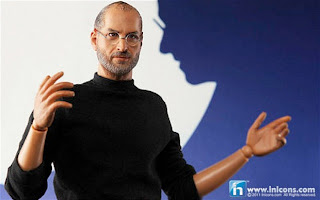DOTCOM businesses looked set to be history just three years ago. Companies
which boasted of high revenues and profits through putting their business
online eventually had to take down their signs from the World Wide Web as
the figures began to turn to red in their account books. Staff were
retrenched, businesses folded and other disappointing results took place
as well.
The world saw the burst of the dotcom bubble and many who were keen to
put their businesses online began to put some brakes on any implementation
of electronic business (e-business) projects.
Now, a few years after the dust has settled, there is a renewed interest
among companies to consider e-business, according to industry observers.
In fact, there is now a sense of urgency for companies to take their
businesses online, which is based on the need to be competitive, to cut
operating costs, to increase productivity and efficiency, and above all,
to increase sales.
Meta Group's senior programme director for content and collaboration
strategies, John Brand, says the sense of urgency for companies to take
their businesses online is different now than it was two to three years
ago.
"Back then, the message was simply `get on the Internet or be killed',
but now the urgency is more about using the Internet and technologies that
have evolved from it to achieve business benefits and make doing business
a more pleasurable and streamlined process," Brand says.
On top of that, companies understand they are no longer simply competing
in their local markets today, says IDC's Asia-Pacific research manager for
government and Internet research, Nathan Midler.
"They have to be concerned about competition from external locations and
developing a well-integrated e-business solution throughout the
organisation is a way that companies are able to compete with external
competition successfully," he says.
However, there is a greater urgency in certain sectors, but less in
others to put their businesses online, says Alan Fung, who chairs the e-
business special interest group of the Association of the Computer and
Multimedia industry Malaysia (Pikom).
"Financial institutions, telecommunication companies, manufacturers,
retailers and government agencies have been quite aggressively putting
their businesses online. And these are not mere static Web sites, but
efforts in putting value-added information and business processes online
that serve staff and business partners," Fung says.
To ensure an e-business project is successful, the role of the users
should not be undermined.
Brand says a great technology project can come easily undone by failing
to take the people factor into consideration.
"This brings us to a major failing cause which is politics," he says,
adding that industry initiatives for e-business can be hijacked by
competing interests, a lack of buy-in across the board, and commitment in
principle but not in effort.
Midler, meanwhile, points out that it is important for companies to
understand why they are implementing e-business solutions in the first
place, and to set realistic goals so that they set themselves up for
success.
"Very rarely does an e-business solution simply not work and it is much
more likely that companies' original expectations for their e-business
solution are not realised," he says, adding that unrealised original
expectations of the e-business solutions is a common occurrence across
different countries.
Fung stresses that full commitment from top management is crucial as
typical e-business implementation has company-wide implications and
involves outside parties such as suppliers and customers to ensure
success.
"Senior management must recognise the need to manage change as typical
e-business involve new ways of doing business."
Companies that want to implement e-business solutions should well define
their e-business strategies and make sure the reasons are clear, the logic
behind deploying solutions sound, and that it will actually deliver the
benefits that are expected, Brand adds.
"The technology is almost irrelevant," he says.
According to him, Meta Group has seen some great examples of where
companies implement e-business solutions with very little technology that
had profound affects on the way the organisation works.
"One such example is replacing a complex manual process of faxing,
telephoning and repeated data entry with a simple series of Web forms that
saved an organisation several millions of dollars," he says.
Oracle, considered as one of the frontrunners in e-business solutions,
believes that by putting their company's business online, staff are given
an edge in terms of possessing information at a click of the mouse.
"It gives executives a certain amount of empowerment by having for
example, sales information online. They can get updates on how much sales
had been done the previous day each morning they come in to work, and that
quick information enables them to plan marketing strategies better, as
well as the best time to bring in a new set of products," says Oracle
Malaysia's managing director V.R. Srivatsan.
Reference:
De Silva R. (2003, October 30). E-business attracts renewed interest. New Straits Times














